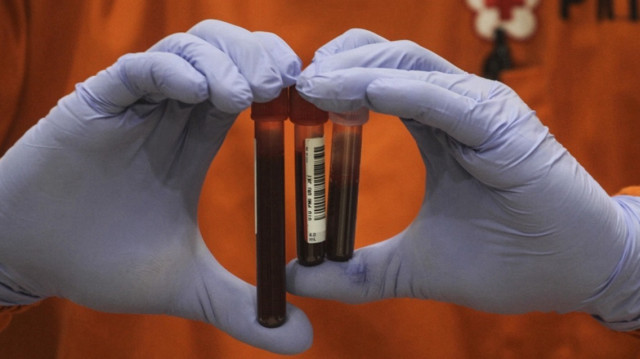
The idea of undergoing blood tests before marriage may seem strange to some. However, medical experts emphasize that these tests can help prevent the transmission of serious genetic and infectious diseases to the next generation.
In countries like Pakistan, many families view premarital blood tests as a baseless or unnecessary precaution. Yet, doctors insist that these tests can prevent numerous complications, ensuring the health and well-being of both partners and their future children.
Medical professionals highlight that some individuals may appear healthy but could be carriers of diseases with late-onset symptoms. Such conditions can be passed on not only to their partners but also to their future offspring. Early diagnosis through blood tests enables timely interventions, potentially avoiding long-term health complications.
'Our daughter has to undergo blood transfusions every month, It’s heartbreaking’
Muhammad Nawaz, a resident of Islamabad, brought his 10-year-old daughter to a Sundus Foundation Thalassemia center for her routine blood transfusion. Sitting in the waiting area, he shared his story with visible regret.
Speaking to the YeniSafak Urdu, he shared that "I married my first cousin, as is common in our family. At the time, no one even suggested that we get tested for any genetic conditions. It was only after our daughter was diagnosed with thalassemia major that we realized both my wife and I are carriers of the disease," he said.
Usman added, "Our daughter has to undergo blood transfusions every month. It’s heartbreaking to see her go through this, knowing it could have been prevented if we had been aware. Now, we strongly advocate for premarital testing to spare other families from the pain we’re enduring."
This case highlights how inter-family marriages, combined with a lack of awareness about genetic diseases, can significantly increase the risk of transmitting hereditary conditions like thalassemia to future generations. Experts emphasize that simple premarital blood tests can prevent such tragedies.
We spoke to Dr. Saqib Ansari, a renowned hematologist from Karachi, who outlined the essential blood tests that couples should consider. These tests focus on identifying genetic, hereditary, and fertility-related health issues.
While determining blood groups may seem routine, complications can arise if the mother's blood type is Rh-negative and the child's blood type is Rh-positive. This condition can cause the mother's body to treat the fetus's blood cells as foreign, leading to severe complications such as fetal anemia.
Dr. Ansari reassures that effective medical solutions are available to manage such cases, ensuring a healthy pregnancy and delivery.
Testing for HIV is crucial, as an undiagnosed infection can be transmitted to the partner or children, increasing the risk of severe health issues, including cancer. However, early diagnosis allows for effective treatment and prevention of complications like infertility and miscarriage.
These infections, often spread through sexual contact, pose significant risks to liver health, including liver failure and cancer. Dr. Ansari advises timely screening and treatment, which can help prevent transmission and ensure a healthy life for the affected individual and their family.
Genetic disorders like thalassemia are particularly prevalent in Pakistan, where approximately 5-7% of the population are carriers of the thalassemia gene. If both partners are carriers (thalassemia minor), their child has a 25% chance of inheriting the severe form of the disease, requiring lifelong blood transfusions.
Premarital screening for genetic conditions can help couples make informed decisions, potentially avoiding significant health challenges for their children.
Infertility testing is critical in societies like Pakistan, where having children is often seen as essential for a successful marriage. Dr. Ansari highlights that infertility issues can affect both men and women. Testing can help identify the underlying causes and provide solutions, reducing societal stigma, especially for women.
In Pakistan, discussions about premarital blood testing remain rare. According to a study by the National Institute of Blood Diseases, the prevalence of thalassemia major in Pakistan is alarmingly high, with approximately 100,000 children affected and 5,000 babies born with the condition every year.
A senior pediatrician highlighted that Iran successfully eradicated blood-borne diseases by mandating pre-marriage blood testing for couples, a model that Pakistan could adopt to combat similar issues. Speaking to Dawn, a Pakistani English newspaper, he said, “The government’s plan to promote awareness and encourage couples to undergo screening has been a complete failure.”
Medical experts urge greater awareness about the importance of these tests to protect future generations from preventable health risks. Premarital testing should not be seen as a reason to cancel marriages but as a proactive step toward building a healthier society.
By addressing this taboo topic and encouraging widespread education, Pakistan can take a significant step forward in safeguarding the health of its people and breaking down barriers to medical progress.


